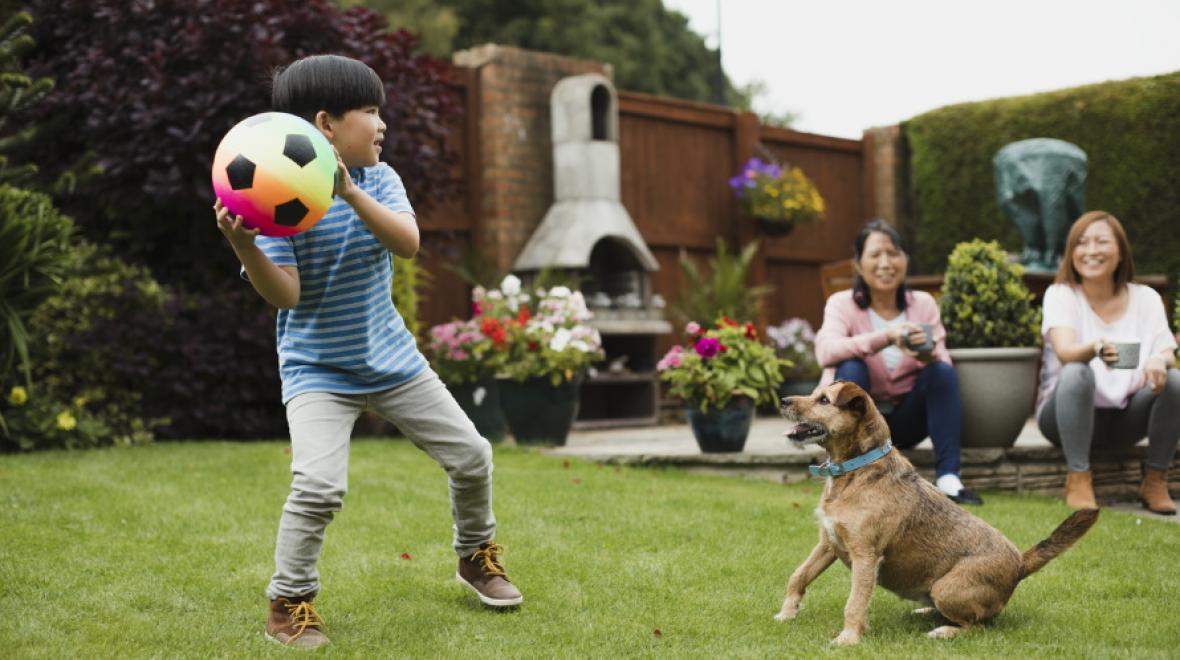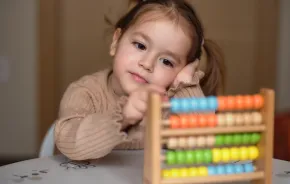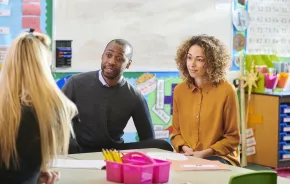
As I’m watching millions of homeschooling memes and online learning opportunities fly around social media, my only thoughts are for my students’ health and happiness. Every teacher I talk to is solely worried about their students’ mental and physical state, not about the status of their writing journals or science notebooks.
So relax. We teachers don’t expect anyone to replicate classroom teaching at home. We know curriculum and learning goals are on pause. (High school students taking AP classes or classes for college credit are the exception. Those students should follow the syllabus as best they can with online resources and or directions from teachers). While parents are scampering to download worksheets and seeking out educational websites, many teachers have been directed to not send out required assignments or give online lectures until school districts can ensure that all students have equal ability to access assignments and learning resources.
Check in with your children’s school district website. If there are no specific directions, rest assured that learning is optional. “Make them go outside to play,” says Malissa Weatherbie, an associate principal and mother of three. “And maybe have them read a bit every day.”
However, school and learning can provide stability. If adding in extra educational time works for your family, here are a few things teachers wish that parents and caregivers would do while schools are closed:
- Read and discuss books. Having kids read independently is great, but the real benefit of reading is the discussion. When reading aloud to little ones, discussion comes naturally, but talking about books is even more important as kids get older. Choose a book that you can read together, either by reading out loud, listening on audio, or each reading independently with talk-time after each chapter. Classroom discussions are often the best drivers of real learning in the classroom, and those moments are the hardest to replicate online or through worksheets. If all you do during school closures is read and discuss books, teachers will be thrilled.
- Write. This one is a little tougher. Writing is hard, and teachers use every motivational trick they know to get students writing. For reluctant writers, try having them keep a one-line-a-day journal or have them take a picture of something each day and give it a caption. If you have a more willing writer, composing letters to a pen pal, family members or elderly folks is a great way to practice writing skills while also building community.
- Projects! Have kids decide on a long-term project that they will work on a bit each day — an art project, garden, a series of science experiments or a research project. Have your kid follow their own interests and plan out what they will complete each day.
- Consider what is being left out of the school curriculum. Over the past decade, high-stakes testing has required that teachers focus on English, math and science. With no state tests for social studies subjects, lessons on geography, civics, history and world cultures have gone by the wayside, particularly in elementary schools. This is a great time to fill in that social studies gap. Listen to podcasts or watch documentaries about places and time periods you don’t know about and take online geography quizzes. Think about other curriculum gaps as well. Are you frustrated that ethnic studies are not being taught? Do you lament the lack of home economics classes? Do you wish your kids were taught cursive, as you were in the third grade? If so, spend the next month reading diverse books, cooking and sewing, or practicing penmanship.
Again, do not put too much stress on yourself and your family during this already anxiety-inducing time. “My own kids are doing about 30–40 minutes of math, independent daily reading and some type of physical activity every day. It is not the same as a typical school day,” says Sara Stevens, kindergarten teacher and mother of middle and high school children. “Please do not feel guilty if you are working and not able to do anything more than keep your family safe and happy at this time.”











